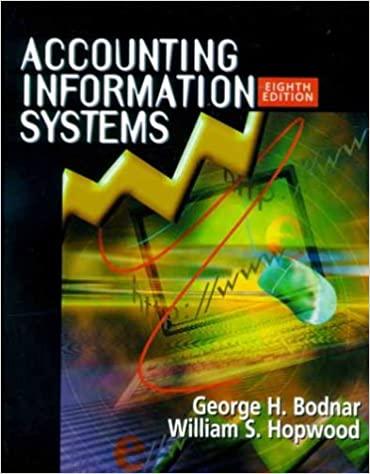Question
____ 4. Stephanie is self-employed. In 2019 she drove 1,000 miles for business out of a total 10,000 miles for the year. Her auto expenses
____ 4. Stephanie is self-employed. In 2019 she drove 1,000 miles for business out of a total 10,000 miles for the year. Her auto expenses for the year were: gasoline - $500; insurance - $1,000; repairs - $200; business parking - $400. How much is her automobile deduction if she uses the standard mileage method?
a. $580
b. $980
c. $2,680
d. $2,100
e. $210
f. $0.
____ 5. An aggressive young attorney is an employee of a small law firm that provides him with an adequate office. He uses the den in his home to prepare legal briefs and review legal documents related to his employment. Assuming the attorney lives near the firm's office and he always has easy access to the office, which of the following statements most accurately describes the deductibility of the home office expenses incurred by the attorney?
a. If the den is used exclusively for business purposes, the expenses are deductible.
b. If the den is used exclusively for business purposes on a regular basis, the expenses are deductible.
c. If the den is used exclusively for business purposes on a regular basis to work for and see clients, the expenses are deductible.
d. In this situation, the expenses are not deductible.
e. The home office deduction was completely eliminated as a result of the Tax Cuts and Jobs Act of 2017.
____ 6. T's employer provides an office for her in its downtown headquarters. Which of the following statements is true?
a. T maintains an office in her home that she uses to conduct work related to her rental property. Even though the rental activities may be considered a business, no deduction can be allowed because T's principal business is that of being an employee and its primary location is downtown.
b. T regularly meets with clients of her employer's business in her home office, which is exclusively used for such purpose. T is entitled to the home office deduction without further inquiry.
c. T maintains a home office that is exclusively used on a regular basis to conduct work regarding her investment portfolio. No deduction is allowed.
d. None of the statements above are true.
Step by Step Solution
There are 3 Steps involved in it
Step: 1

Get Instant Access to Expert-Tailored Solutions
See step-by-step solutions with expert insights and AI powered tools for academic success
Step: 2

Step: 3

Ace Your Homework with AI
Get the answers you need in no time with our AI-driven, step-by-step assistance
Get Started


